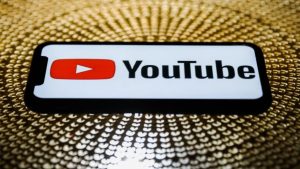
Know More About Science
Science is everywhere. You can find it in the natural world, in boardrooms and in your own backyard. Science is a process of inquiry and experimentation that helps us make sense of the world around us.
At its core, science is about observation and interpretation. Scientists use their observations to develop hypotheses, which they then test through experimentation. This process helps us understand the complexities of the natural world and the universe around us.
What Is Science?
Simply put, science is the pursuit and application of knowledge. It’s a systematic way of thinking about the world around us and trying to understand it better. Science is based on evidence, and scientists are constantly asking questions and testing hypotheses to figure out how the world works.
Science is responsible for so many of the incredible advances we’ve made as a species. It’s allowed us to travel to the moon, develop vaccinations and cures for diseases, and create technologies that have changed the way we live. And it’s constantly evolving, as new discoveries are made and old ones are debunked or refined.
Science is amazing, and it’s something that we should all be excited about. It’s responsible for everything we know and everything we’re able to do. So the next time you hear someone say they don’t believe in science, be sure to set them straight!

The Scientific Method
The scientific method is the system by which scientists, collectively and over time, endeavor to construct an accurate description of the natural world. It is a process of rigorous inquiry that relies on observation, experimentation, and measurement.
The scientific method begins with making an observation about the natural world. This might be something as simple as noticing that a plant grows in the light, or as complicated as formulating a theory about the origins of the universe. Scientists then develop a hypothesis: a testable statement about how the world works that can be verified through experimentation.
Next, they design an experiment to test their hypothesis. This may involve gathering data through observation or performing experiments in a lab. The data collected from the experiment is analyzed to see if it confirms or disproves the hypothesis. If the data confirms the hypothesis, scientists will develop a theory based on their findings. If the data disproves the hypothesis, scientists will go back to the drawing board to come up with a new hypothesis.
This process of inquiry and experimentation is how scientists build our understanding of the natural world—and it’s what makes science one of our most reliable sources of knowledge.
Conclusion
In short, science is a way of knowing about the natural world. It is a systematic and logical approach to discovering how things in the universe work. It is also a body of knowledge about the physical and natural world.



